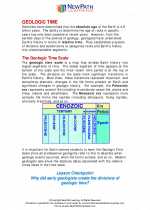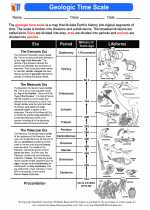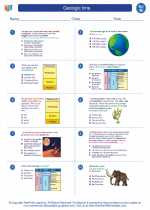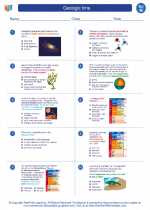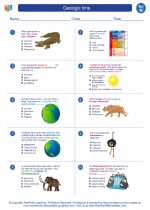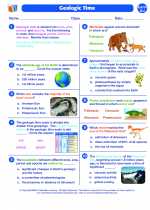Geologic Time
Geologic time refers to the vast expanse of time over which Earth has formed and evolved. It is divided into different periods and eras, each marked by significant geological and biological events. Understanding geologic time is important for scientists to study the history of Earth and the evolution of life on the planet.
Key Concepts
- Relative Dating: This method involves determining the age of a rock or fossil by comparing it to other rocks or fossils. It helps scientists understand the sequence of events in Earth's history.
- Absolute Dating: Absolute dating methods, such as radiometric dating, provide a numerical age for rocks and fossils. This helps scientists determine the exact age of geological events and the evolution of life forms.
- Geological Time Scale: The geological time scale is a system of chronological measurement that relates stratigraphy (the study of rock layers) to time. It is divided into eons, eras, periods, epochs, and ages, each with its own unique characteristics and events.
- Fossil Record: The fossil record provides evidence of the evolution and extinction of life forms over the history of Earth. It helps scientists understand the timing and patterns of biological evolution.
Study Guide
Here are some key points to understand when studying geologic time:
- What is geologic time and why is it important for understanding Earth's history?
- What are the major divisions of the geological time scale, and what are the key events associated with each division?
- How do relative dating and absolute dating methods contribute to our understanding of geologic time?
- What is the significance of the fossil record in studying geologic time and the evolution of life on Earth?
- How has our understanding of geologic time evolved over time, and what are the key contributions of scientists to this field of study?
By understanding the principles of geologic time and the methods used to study it, scientists can piece together the intricate history of our planet and the life forms that have inhabited it over millions of years.
.